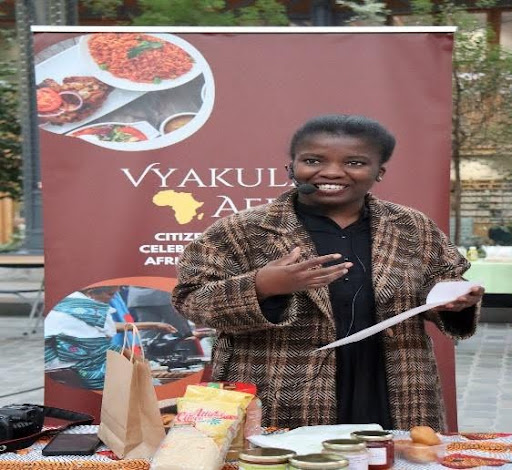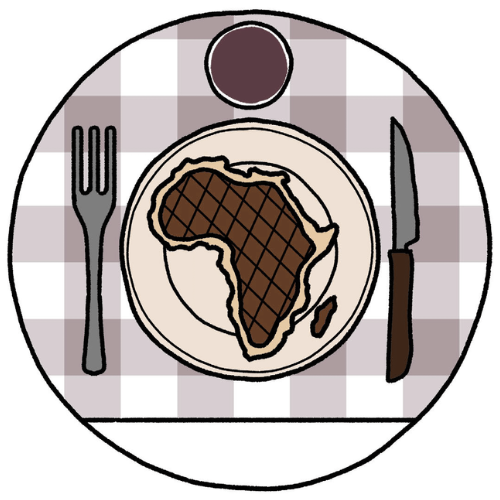Project Description:
Vyakulani -“in the Food” or “which food”- is a Swahili term with a dual meaning that captures the essence of our project. Despite the historic relationship between Europe and Africa, the food culture of the African diaspora in Belgium and the EU lacks exploration in scientific literature. Thus, little is known in the wider public about its potential for healthy crops, diets and cuisine. Our project aims to bridge this gap by facilitating the transfer of African culinary knowledge across generations and communities. Additionally, we will explore the role of entrepreneurship in enabling access to indigenous, healthy African food crops in Belgium. Through this project, we plan to showcase the rich culinary heritage of the African diasporas in Belgium and how it can contribute to healthier diets.
Project Type: Kick Starting Grant
Theme: Sustainable Lifestyles, Food
Mentor:Cristina Luís
Vyakulani: Reclaiming African Foodways and Heritage in Europe
Vyakulani is a Swahili term meaning “in the foods” or “which foods,” reflecting the project’s focus on exploring the complexity of African diaspora foodways in Europe. While ingredients like kimchi, lemongrass, and quinoa have gained widespread acceptance in European markets, African superfoods such as millet, fonio, and sorghum remain relatively unknown despite their significance in African food culture. This project aims to address this disparity, particularly as interest in nutritious, plant-based diets continues to grow alongside advocacy for fair-trade food systems between Africa and Europe.
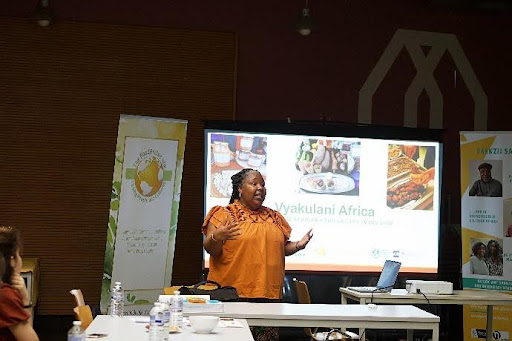
The project highlights the challenges and opportunities in promoting African foods in Europe. Despite historical links between the two continents, African ingredients often face barriers to integration into European markets. Members of the African diaspora in Europe frequently seek to preserve their culinary heritage, preparing traditional dishes with indigenous ingredients as an act of cultural affirmation. This research delves into the sustainability of these traditions, their transmission across generations, and their potential to benefit wider European society. It also examines how Western lifestyles and eurocentric biases towards African food can perpetuate (neo-)colonial perceptions of African dietary habits.
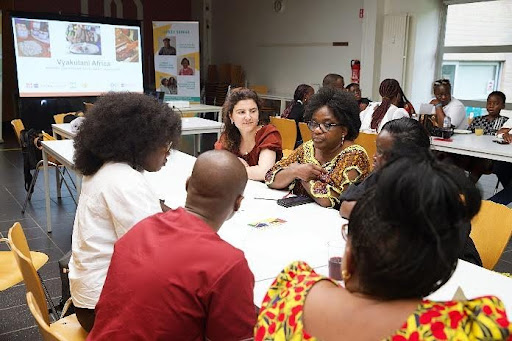
Vyakulani has three main objectives: to underscore the value and potential of African food systems to a broader audience, to inspire Africans living in Europe to reclaim and celebrate their food heritage, and to facilitate the wider dissemination of healthy African foods. Citizen scientists from the African diaspora have played a pivotal role in the project, contributing from its inception by designing research questions and organising activities. Their enthusiasm reflects how deeply the call to reclaim food heritage and cultural identity resonates with their aspirations and views of their societal roles.
However, the project has revealed significant challenges, such as the limited availability of African foods in European markets. This lack of access underscores the diaspora’s limited control over the African food supply chain in Belgium, sparking discussions among citizen scientists about strategies for impactful change. Nevertheless, this scarcity has also driven creative adaptations, with participants blending African and European ingredients to develop innovative dishes. The project has documented these efforts, showcasing both traditional recipes and new culinary fusions. For instance, Senegalese pastries crafted by Chef Alagie of Banjul Kitchen in Belgium and Nigerian pumpkin leaf soup prepared by Chiemeka Onyeze exemplify the diversity and creativity within the community.
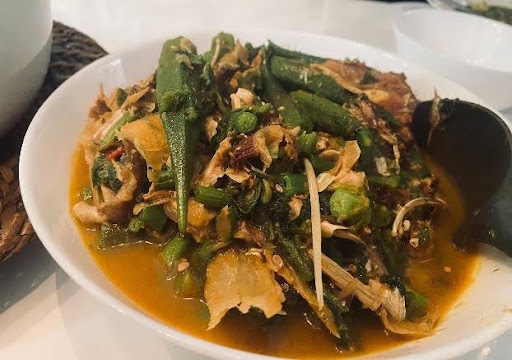
Another pressing issue is the intergenerational transfer of culinary knowledge within African diaspora families. Many parents lack the resources to travel to Africa regularly with their children, where they can immerse themselves in the culture, learn traditional cooking techniques, and experience authentic African cuisine. This raises the critical question of how to inspire younger generations to explore and appreciate the variety of African foods and flavours. While the Vyakulani project has yet to provide definitive solutions, ongoing data analysis may offer insights into addressing this challenge.
The project has also sought to engage non-African audiences to understand external perceptions of African food in Belgium. Presentations at notable events, including those hosted by the Brussels Flemish Government Department of Culture, the African Diaspora Agrofood Forum, and the Belgian Citizen Science Event in Mechelen, have provided valuable opportunities to share findings and foster dialogue.
To further promote African food traditions, Vyakulani has organised cooking workshops for the general public. At the Fingerlicious workshop, participants were introduced to Nigerian and Senegalese dishes, learning to eat them with their hands. The event was a rich cultural exchange, with even East African attendees discovering unfamiliar culinary traditions.
As the project continues, outreach activities are planned to share findings through public events and reports. Although the journey is ongoing, Vyakulani has already sparked important conversations about reclaiming African foodways, preserving cultural heritage, and fostering innovation within African cuisine. Through these efforts, it strives to elevate the recognition and appreciation of African food culture in Europe.
